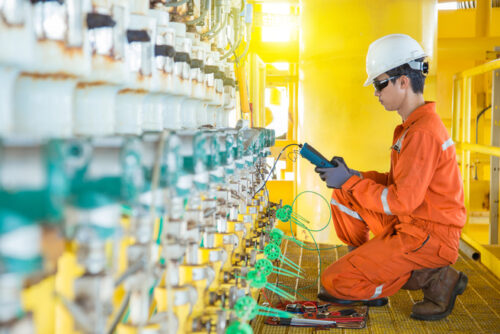Pros and cons of Electrical Instrumentation courses
Pros and cons of Electrical Instrumentation courses
Dec 15, 2021

Electrical instrumentation is one of the fastest growing industries, not just in Australia but all over the world. Since production of industrial goods are dependent on the calibration, commission and maintenance of measurement of electrical devices, most of the industries are now focusing on electrical instrumentation services.
Introduction to Electrical Instrumentation
Electrical instrumentation is a branch of electrical engineering that deals with the measurement of process variables like pressure, temperature, flow, etc within industrial facilities and also the management of equipment for automated control.
The work is usually done by the Instrumentation engineers who measure process variables (such as temperature, pressure, and volume) within an industrial plant by using various measuring equipment to control them.
Areas which we can apply instrumentation and automation
Electrical Instrumentation workers are employed in the following areas:
- Installation of electrical equipment and wiring systems
- Maintenance of motors and motor control systems
- Installation of measurement and control equipment in pharmaceutical and other industries
- Maintenance of the instrumentation equipment in these industries
- Sales of instrumentation equipment.
An instrumentation system would be used for monitoring and controlling the pressure/temperature/flow/pH of water, oil, steam, acids, air or food products. The equipment is a combination of electrical/ mechanical components.
Pros and cons of Electrical Instrumentation Course
Pros:
- After completing the Electrical Instrumentation Course with PMV, you get an opportunity to learn several practical applications with knowledge in this field.
- Skills learned from this course can be used in other fields and might make learning some other related skills easier.
- After the Electrical Instrumentation Course, you may land on a advisory/supervisory job role as an Electrical instrumentation technician so there is less chance of hurting yourself during work.
- You learn how to deal with electrical equipment safely and correctly so that you can keep yourself safe.
- The wider knowledge base of an instrumentation engineer gives them an edge over mechanical and electrical engineers.
Cons:
- It takes at least a bachelor’s degree and a Certification in electrical instrumentation, which you can get after enrolling with Project management vision, plus years of apprenticing another electrical engineer/electrician.
- There is always the risk of hurting yourself with either the tools or the electrical devices.
- It requires abilities and knowledge with numbers. This is a con only for people who are not particularly skilled or interested in the same.
Demand for instrumentation technicians
Many firms now use automation practices that require highly programmed electronic equipment to do the work that used to be manually performed. Now because of high intensity of how much these automated machines are used, they run into quite a number of problems and need experts to be able to upgrade, alter and fix issues that may arise.
The global need for Electrical instrumentation is on the rise, and analysts project that by 2026, the industry will be worth $106 billion. As the instrumentation market expands, so does the demand for appropriately trained individuals who have undergone the required training. In the coming years, employment for instrumentation technicians after completing the Electrical instrumentation course is expected to grow further.
The qualification required to obtain a positive skills assessment as an Electronic Instrument Trades Worker is the Certificate III in Electrical Instrumentation
If you undertake this course and participate in the job ready program you may even be able to do this without being sponsored by an employer and you may not need to live in a regional area.
Electrical Instrumentation Courses by PMV
Project management vision training equips students with the knowledge and practical exposure in instrumentation and process automation and control. PMV courses provide competencies in process and control to select, install, commission, fault find and maintain electrical and instrumentation equipment.
PMV provides UEE50220 – Diploma of Electrical & Instrumentation which opens more doors for the students in areas of instrumentation and control, technical authority and supervisory roles.
For more information on Electrical Instrumentation courses offered by PMV, please visit – https://www.pmv.net.au/
Recent Post
Jul 29, 2024
